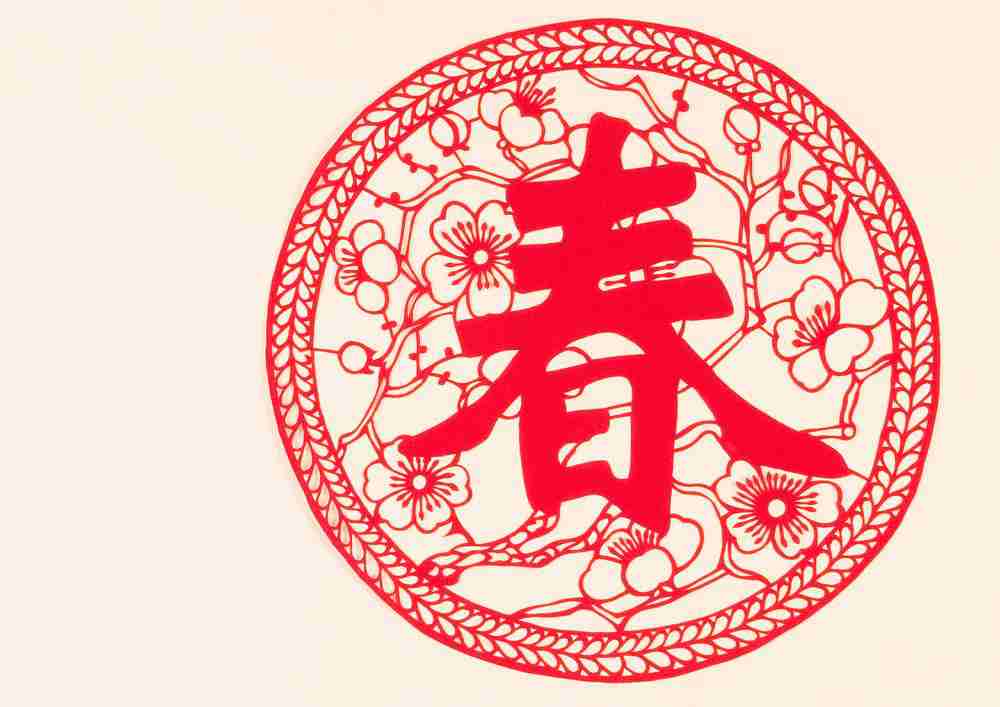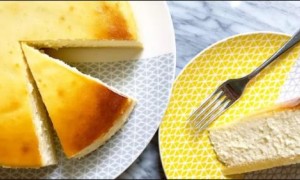导读:小子小子你别馋,过了腊八就是年。腊八粥、喝几天,沥沥拉拉二十三。二十三,糖瓜粘;二十四,扫房子;二十五,糊窗户;二十六,炖猪肉;二十七,宰公鸡;二十八,面粉发;二十九,蒸馒头;三十晚上熬一夜;大年初一扭上街。这首民谣你一定不陌生,让我们看看具体有哪些习俗吧!

Spring Festival, which falls on the 1st day of the 1st lunar month, is the most important festival in China and a time for family reunion, like Christmas in the West.
大年初一春节,是中华民族最隆重的传统节日,其意义堪比西方的圣诞节。
Traditionally, Spring Festival starts in the early days of the 12th month of the lunar calendar and lasts until the middle of the 1st lunar month of the following year. with the modernization of China, some traditional customs are still followed today, but others have fallen by the wayside.
然而,传统意义上的春节则一般从腊月初期算起,直至正月十五才算真正结束。在现代的中国,一些习俗随着时代的发展被逐渐淘汰,但仍有一些传统习俗得以保留。
Here are some customs that traditionally celebrate the Spring Festival.
小编特意整理了春节期间的各种传统习俗。
Day 23 of the 12th month
腊月二十三
Little New Year, which falls the 23rd day of the 12th month in the Lunar calendar, is also known as the Festival of the Kitchen God, the deity who oversees the moral character of each household.
腊月二十三,俗称“小年”,在民间也被视为“祭灶节”。凡家内各事,灶神均有权管理。为避免灶神在这一天打小报告,人们都会在这一天祭祀灶神。
People make sacrifices to the Kitchen God on this day. A paper image is burnt dispatching the god’s spirit to Heaven to report on the family’s conduct over the past year. The Kitchen God is then welcomed back by pasting a new paper image of him beside the stove.
通常来说,人们会摆些祭品来供奉灶神。除此之外,人们还会烧掉灶神旧的剪纸,意为“送灶神上天”,令其向玉皇大帝报告其所在一家在过去一年的表现。除夕时再在炉子旁贴一张新的贴画,意为将灶王迎了回来。
Day 24 of the 12th month
腊月二十四
Families undertake thorough house cleaning on the 24th day of the 12th month in the Lunar calendar, sweeping out the old in preparation for the coming year.
腊月二十四,掸尘扫房子。家家户户会在这一天打扫卫生,准备辞旧迎新。
According to tradition, ghosts and deities must choose either to return to Heaven or to stay on Earth during the last month of the year. It is believed that to ensure the ghosts and deities’ timely departure, people must thoroughly clean both their bodies and their dwellings, down to every last drawer and cupboard.
依照传统习俗,鬼神在一年中最后一个月份内要么选择回天上要么留在人间。为了保证鬼神统统离开,人们通常会清洗身体,理发沐浴,同时也会打扫家中庭院,细致到每一个抽屉和橱柜。
Day 25 of the 12th month
腊月二十五
People turn the mill and make tofu on the 25th day of the 12th month in the Lunar calendar, as legend says the Jade Emperor will descend and taste the soybean curd residue to experience an austere life.
腊月二十五,推磨做豆腐。传说玉皇大帝会在这一天下界查访,通过吃豆腐渣来体验民间清苦生活。
According to Taoist mythology, the Jade Emperor is the Taoist ruler of Heaven. He is one of the most important gods of the Chinese traditional religious pantheon.
根据道教神话,玉皇大帝是道教神仙王国的最高统治者,是中国传统宗教中最重要的神仙之一。
Day 26 of the 12th month
腊月二十六
The folk saying goes: "butcher a pig and get some meat to prepare for the New Year feast" on the 26th day of the 12th month in the Lunar calendar.
民间流传着这样一句谚语:“腊月二十六,杀猪割年肉。”
In the old days, many people could not afford meat and they saved the best for the New Year feast. People’s livelihoods have improved greatly and meat is now a very common dish in daily diet, but the Chinese still prefer having meat during festival season.
在过去,许多人平常买不起肉,只能等到新年这一天才能吃到肉。现如今人们的生活条件大大改善,肉也成为家家户户日常都能吃到的菜品,但中国人仍然保留了在节日期间吃肉的习惯。
Day 27 of the 12th month
腊月二十七
People kill chickens and go to market to buy provisions for the Spring Festival on the 27th day of the 12th month in the Lunar Calendar. With the approach of the Lunar New Year, Chinese people prepare ingredients and food they need for the New Year feast. Chicken is an indispensable dish.
腊月二十七,宰鸡赶大集。随着新年将至,人们通常在这一天置办年货,购买过年期间需要的食物等等。鸡肉则是必不可少的一道菜品。
Day 28 of the 12th month
腊月二十八
After people have cleaned the house and started preparing food, they begin decorating their homes creating an atmosphere of rejoicing and festivity on the 28th day of the 12th month in the Lunar Calendar. Decorations include spring couplets, New Year pictures, posters of door gods and paper-cuts.
待人们打扫干净屋子,置办好年货后,便开始着手装饰房间,增添过节的喜庆气氛。人们通常在这一天贴春联、年画、门神贴画以及剪纸等。
Day 29 of the 12th month
腊月二十九
On the 29th day of the 12th lunar month people visit the graves of their ancestors to honor their memory. It is said Spring Festival originated in the Shang Dynasty (c. 1600 BC-c. 1100 BC) from the people’s sacrifice to gods and ancestors at the end of an old year and the start of a new one.
腊月二十九,腊月二十九,上坟请祖上大供。据说春节起源于商朝(公元前1600-公元前1100年),人们在年末岁初的时候供奉上帝和祖先。
Day 30 of the 12th month - Lunar New Year’s Eve
大年三十——除夕之夜
Chinese people are supposed to stay up the whole night on the 30th day of the 12th month in the Lunar Calendar.
大年三十,一年的最后一天,一家老小都会熬夜守岁。
In Chinese mythology, a monster called nian would come out to harm people on New Year’s Eve, so people get together, staying up and chatting, hoping for a peaceful passage of time. The custom of staying up symbolizes the warding off of all diseases and disasters and wishing good luck in the New Year.
在中国神话里,有一个叫做“年”的怪兽会在除夕之夜前来寻找猎物并伤害人类。因此,人们便聚在一起,围坐闲聊,熬夜守岁,盼望平安无事地过渡到新年当中。通宵守夜,象征着把一切邪瘟病疫照跑驱走,期待着新的一年吉祥如意。
New Year’s Day
大年初一
The first day of Chinese New Year, also known as the "day of chicken", officially begins at midnight.
新年第一天,也是“鸡年”的第一天,从十二点钟时就开始了。
It is traditional to light firecrackers and make as much of a din as possible to chase off the evil monster nian.
通常,人们会放鞭炮,制造尽可能大的声响,将怪兽“年”吓跑。
Most importantly the oldest and most senior members are visited with the visits strengthening family kinship.
最重要的习俗,则是向长者拜贺新年,加强家庭关系。
Senior members of the family hand out red envelopes containing cash, a form of blessing and to suppress aging and the challenges of the coming year, to junior members of the family, mostly children and teenagers.
除此之外,家里长辈还要向小辈们(尤其是儿童和青少年)分发红包,也称压岁钱,代表压住邪祟和来年一切不顺心的事情。
Day 2 of the 1st month
大年初二
On the second day, married daughters usually go back to their own family to visit parents, relatives and close friends. Traditionally, married daughters didn’t have the opportunity to visit their birth families frequently.
大年初二,嫁出去的女儿都会回娘家,并拜访亲戚朋友。传统意义上来说,出嫁的女儿鲜少有机会回来探望娘家亲朋好友。







